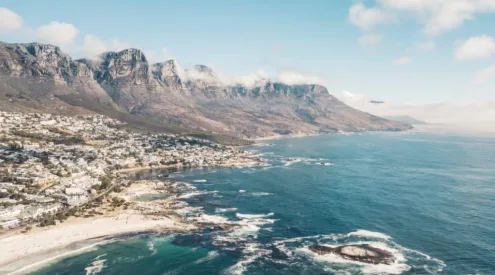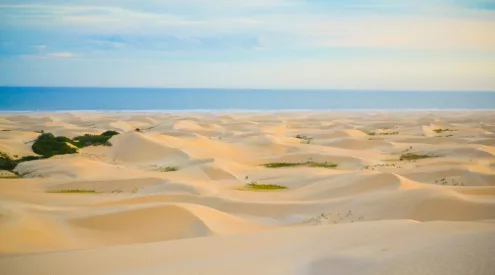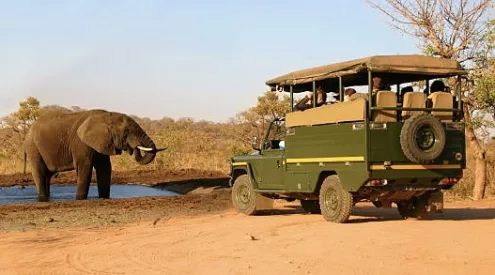Stretching from Nkurenkuru in the north east through the lush Zambezi region to the famous Victoria Falls, the new Four Rivers Route is one of three new self-exploration routes in Namibia for travellers to discover.
With an unusual water ecosystem that gives life to rich and rare wildlife, birds and culture, the Four Rivers Route is named after the river systems that flow through the Zambezi and Kavango regions. The Zambezi, Okavango, Kwando and Chobe Rivers create a wetland paradise that is one of Southern Africa’s best-kept secrets.
This riverine landscape is also home to over 430 bird species, free-roaming wildlife and numerous culturally rich villages and attractions. This new self-drive route has been developed to take adventurous travellers off the beaten track to discover some of the country’s lesser known attractions. The route was designed by Open Africa for travellers who are interested in taking their time as they navigate their way through the area.
The Four Rivers Route is divided into three suggested experiences, each with their own unique attractions, namely the Kavango Open Africa Route, Caprivi Wetlands Paradise and the Four Corners Experience.
Stretching 383km the Kavango Open Africa Route is based on the riverine landscapes of the Kavango River, its people, birds and wildlife. The route runs from Nkurunkuru in the west to Mohembo in the east and also provides access to the Mahango and Khaudum National Parks on the border of Botswana. The beauty of this area was only discovered by explorers in the late nineteenth century and is still being discovered by travellers today. The route offers an array of attractions and a diversity of culture and is a renowned birding hotspot. Other attractions that form part of the experience include the Mbunza Living Museum, Khaudum National Park, Nyangana Mission, Andara Mission, the Okavango River System and Popa Falls as well as Mahango National Park. The second of these experiences, aptly named the Caprivi Wetlands Paradise, covers 430 km and epitomises Africa with free-roaming wildlife and communities living side-by-side, sustainably utilising their resources. Crossing the Okavango River to enter the route from the west (Bwabwata National Park) travellers will immediately realise this is not a typical park.
Approximately 5 000 people live within the park and have formed an association to co-manage the park with the Ministry of Environment and Tourism (MET) and derive benefits from the natural resources. It is not until you reach the Kwando River with its more densely vegetated riverine woodlands that you are likely to spot herds of elephant. Also known as Namibia’s birding paradise, the area has varied habitats including broad-leafed and acacia woodlands, Mopane forests, riverine forests, grasslands and floodplains, and therefore boasts more than 400 species of birds.
The Four Corners Experience stretches from the Ngoma border post, through Chobe National Park in Botswana to the mighty Victoria Falls that are shared by two countries, Zambia and Zimbabwe. Along the way travellers will catch a glimpse of the Zambezi River before reaching the Chobe River as it merges with the Zambezi. Seeing the abundant wildlife of the area come to drink at sunset on the banks of the Chobe River is one of the best experiences Southern Africa has to offer. The final destination on this experience is the famous Victoria Falls, or Mosi-oa-Tunya (the smoke that thunders), Africa’s biggest spectacle of water and a sight not to be missed.
Anyone with a passion for wildlife, birds and fishing will return home with a thousand pictures and wealth of memories to share. The main attractions that form part of this experience include Chobe National Park, Victoria Falls and the Four Corners Baobab on Impalila Island.
The Four Rivers Route was developed by the Namibia Tourism Board and Open Africa in a project funded by the Millennium Challenge Account Namibia which aims to diversify tourism in Namibia.


























